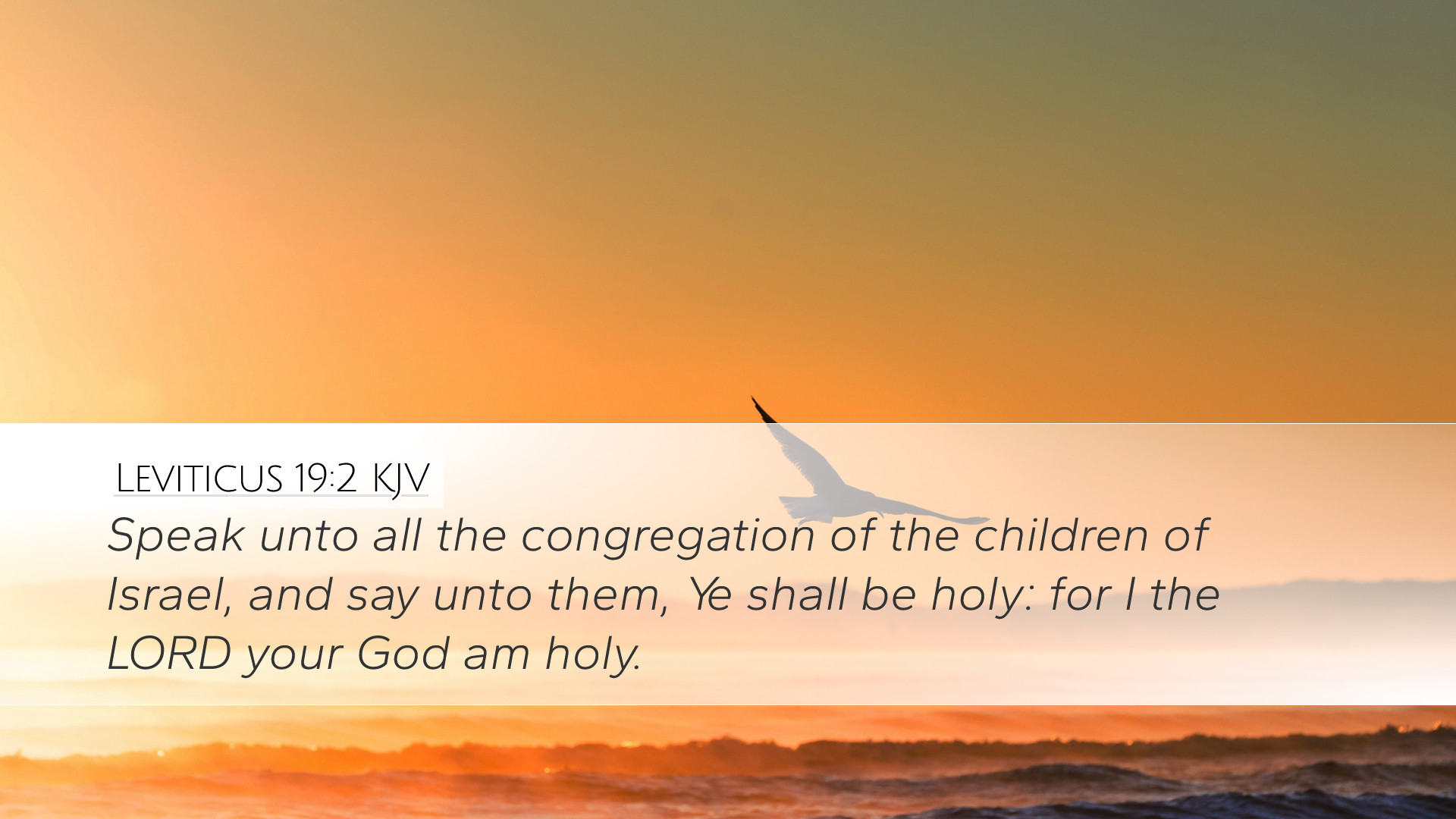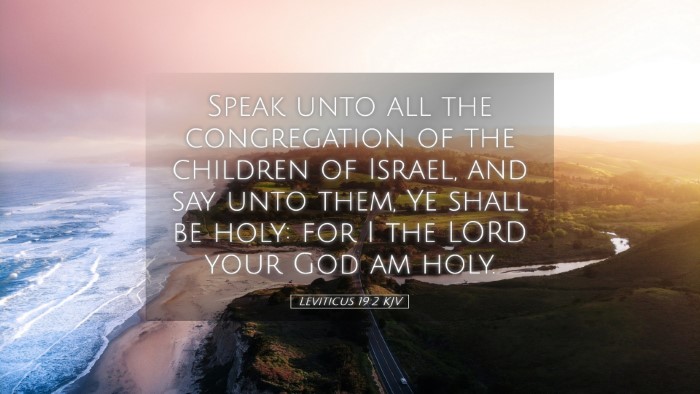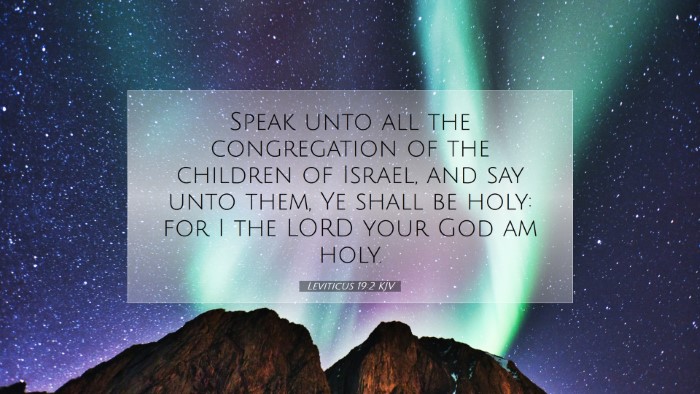Exegesis and Commentary on Leviticus 19:2
Leviticus 19:2 states: "Speak unto all the congregation of the children of Israel, and say unto them, Ye shall be holy: for I the LORD your God am holy."
Introduction
This pivotal verse in Leviticus serves as a directive from God to His people, emphasizing the fundamental character of holiness that should define the lives of the Israelites. This instruction sets the tone for the ethical and moral codes that follow and underscores the relationship between divine holiness and human behavior.
The Call to Holiness
God communicates through Moses to the whole congregation, which signifies the collective responsibility of Israel to embody His holiness. The usage of “all the congregation” indicates that this call transcends individual levels of spirituality, indicating a communal expectation.
Matthew Henry's Insights
Matthew Henry highlights that God's holiness is not merely an attribute but the essence of His being. He emphasizes the necessity for the Israelites to mirror the holiness of God in their daily lives and interactions, much like a beacon that reflects the divine light. Henry suggests that to be holy is to be distinct from sinful patterns of the world, underscoring the importance of living set apart for God's purposes.
Albert Barnes' Contributions
Albert Barnes elaborates on the imperative nature of this command. He notes that holiness involves both a separation from sin and an elevation towards righteousness. Barnes posits that this call to holiness is urgent and continuous for the people of Israel, encouraging a lifestyle of devotion that is consistent with God’s character. He further explains that such holiness is not achieved by mere rituals but through genuine obedience to God’s statutes and a heartfelt commitment to His ways.
Adam Clarke's Commentary
Adam Clarke interprets this verse as fundamental to understanding the entire moral and ceremonial law given to Israel. Clarke points out that the holiness expected of the Israelites is indicative of their status as God’s chosen people. He emphasizes that holiness is both a privilege and an obligation, positioning Israel as a light to the nations. Clarke also suggests that this standard is relevant for the Christian church today, drawing parallels between the ancient covenant community and the contemporary body of believers.
Theological Implications
The command to be holy is rooted in the nature of God Himself. God’s holiness serves as the foundation for all ethical teachings in the Scripture. Holiness involves both personal piety and social justice, reflecting the character of God in interpersonal relationships and community life.
Holiness and Community
The collective nature of this command implies a communal aspect of holiness. As members of the body of Christ, believers are called to nurture a healthy community that reflects God's holiness. This highlights the importance of accountability and mutual encouragement within the church.
Practical Applications
- Personal Reflection: Believers are urged to examine their lives and align themselves more closely with God’s will.
- Interpersonal Relationships: The call to holiness requires Christians to demonstrate love, mercy, and justice in their dealings with others.
- Community Engagement: Churches are encouraged to become active participants in societal issues, embodying holiness through service and outreach.
Exhortation for Modern Believers
This verse challenges modern believers to understand that holiness is not an antiquated concept but a vital life principle that informs every aspect of faith. In a world filled with moral relativism, the timeless call to holiness remains a rallying point for the church, urging believers to live distinctly in accordance with God’s character.
Conclusion
Leviticus 19:2 encapsulates the essence of God’s expectations for His people: a life that embodies holiness in thought, word, and deed. The insights from renowned commentators like Matthew Henry, Albert Barnes, and Adam Clarke provide a rich understanding of this complex concept, emphasizing its relevance across generations. As we strive for holiness, we draw closer to understanding God’s heart and purpose for His people.


